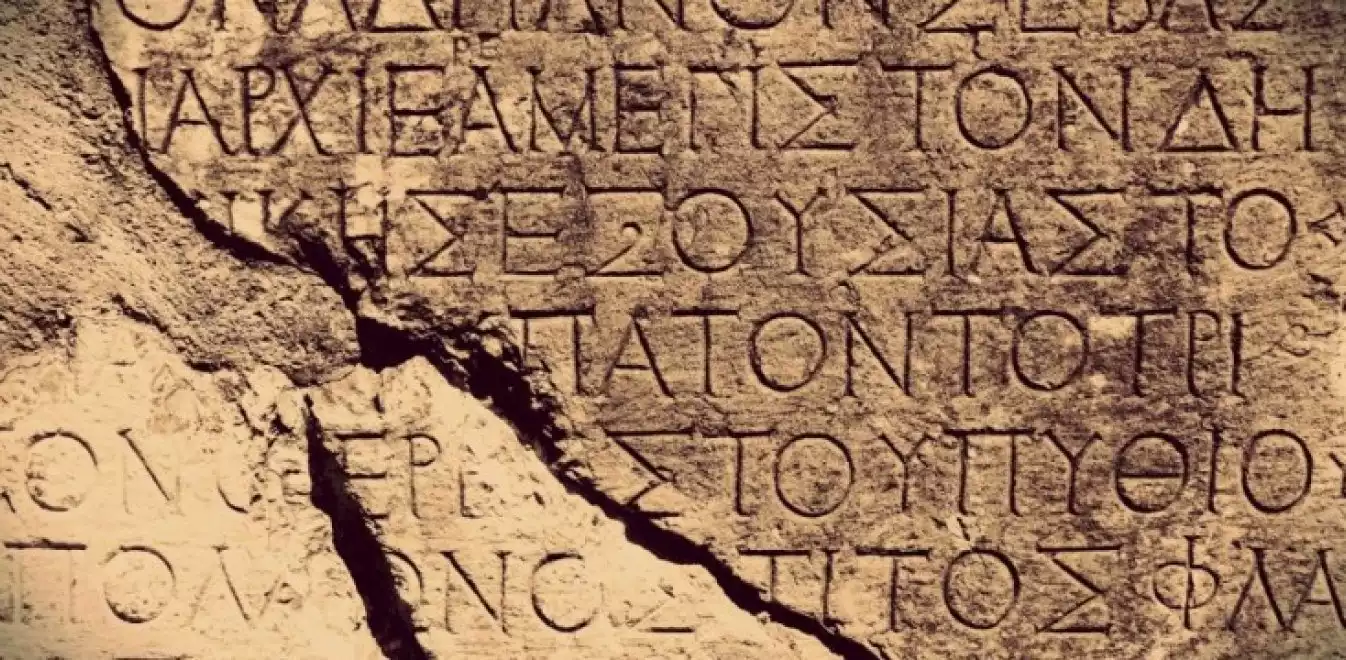
Alpha, the inaugural letter of the Greek alphabet, stands as a symbol of beginnings and origins. Its journey from ancient Phoenician scripts to its current typographic form unfolds a rich linguistic heritage. Alpha’s etymology traces back to the Phoenician word ‘aleph’, meaning ‘ox’. This connection is evident in its earliest graphical representation, resembling an ox’s head. The evolution of this character through various historical phases reflects a significant typological transformation, showcasing the dynamic nature of language development.
In the Greek lexicon, Alpha’s role extends beyond its phonetic value as a vowel. Its usage in various contexts, from mathematics to astronomy, underscores its versatility and enduring significance in Greek culture. The letter has transcended its primary function as a mere alphabetic character, embedding itself deeply in the fabric of Greek linguistic identity.
Alpha in the Biblical Context
Alpha’s presence in the Bible imbues it with profound theological significance. It appears notably in the Book of Revelation, where it is coupled with Omega, the last letter of the Greek alphabet. This pairing, “Alpha and Omega,” symbolizes the eternal nature of Christ, as stated in Revelation 22:13, “I am Alpha and Omega, the beginning and the end, the first and the last.” This metaphorical use highlights the encompassing and omnipresent nature of God, from the commencement to the culmination of time.
The symbolic use of Alpha in Christian theology extends beyond its biblical appearance. It represents the foundation of faith, the starting point of spiritual journeys, and the initial step towards salvation. In ecclesiastical art and literature, Alpha often appears in conjunction with Omega, reinforcing the concept of Christ as both the beginning and the end of all things.
Alpha’s significance in the biblical narrative is not merely a linguistic curiosity but a cornerstone in Christian doctrinal teachings. It serves as a constant reminder of the omnipresence and omnipotence of God, embodying the concept that all things originate and find their conclusion in the divine.
Alpha in Mathematics and Astronomy
In the realms of mathematics and astronomy, Alpha’s influence is equally profound. In mathematics, the letter Alpha often represents angles in geometry, serving as a symbol for unknown variables in algebra. Its use in these contexts exemplifies the Greek alphabet’s critical role in the development of mathematical notation, facilitating clearer communication and problem-solving processes.
The brightest star in a constellation is often denoted by Alpha under a naming system stemming from the Bayer designation framework. This categorization assigns Greek letters to stars contingent on their evident luminosity and site inside a constellation. As an illustration, Alpha Centauri constitutes the stellar system in closest proximity to the Solar System and represents one of the most brilliant stars observable in the night sky. Such celestial annotation built on the Greek alphabet points to its far-reaching impact in structuring and comprehending the cosmos.
The Greek letter Alpha, transcending its initial role as a mere character, has embedded itself deeply in various facets of human knowledge. From its biblical significance to its applications in mathematics and astronomy, Alpha represents a bridge between ancient linguistic traditions and contemporary scientific thought. Its journey from a simple symbol to a multifaceted icon of culture, religion, and science illustrates the enduring legacy of the Greek alphabet in shaping human understanding and expression.
References
- “Writing Systems: A Linguistic Approach” by Henry Rogers, Oxford: Blackwell Publishing, 2005.
- History of the Greek Alphabet – Greek Educational Blog (Accessed 19 Dec 2023)
- Greek-Language.gr – Ancient Greek History (Accessed 19 Dec 2023)
- Alfavita – Innovation of Ancient Greek Alphabet (Accessed 19 Dec 2023)
